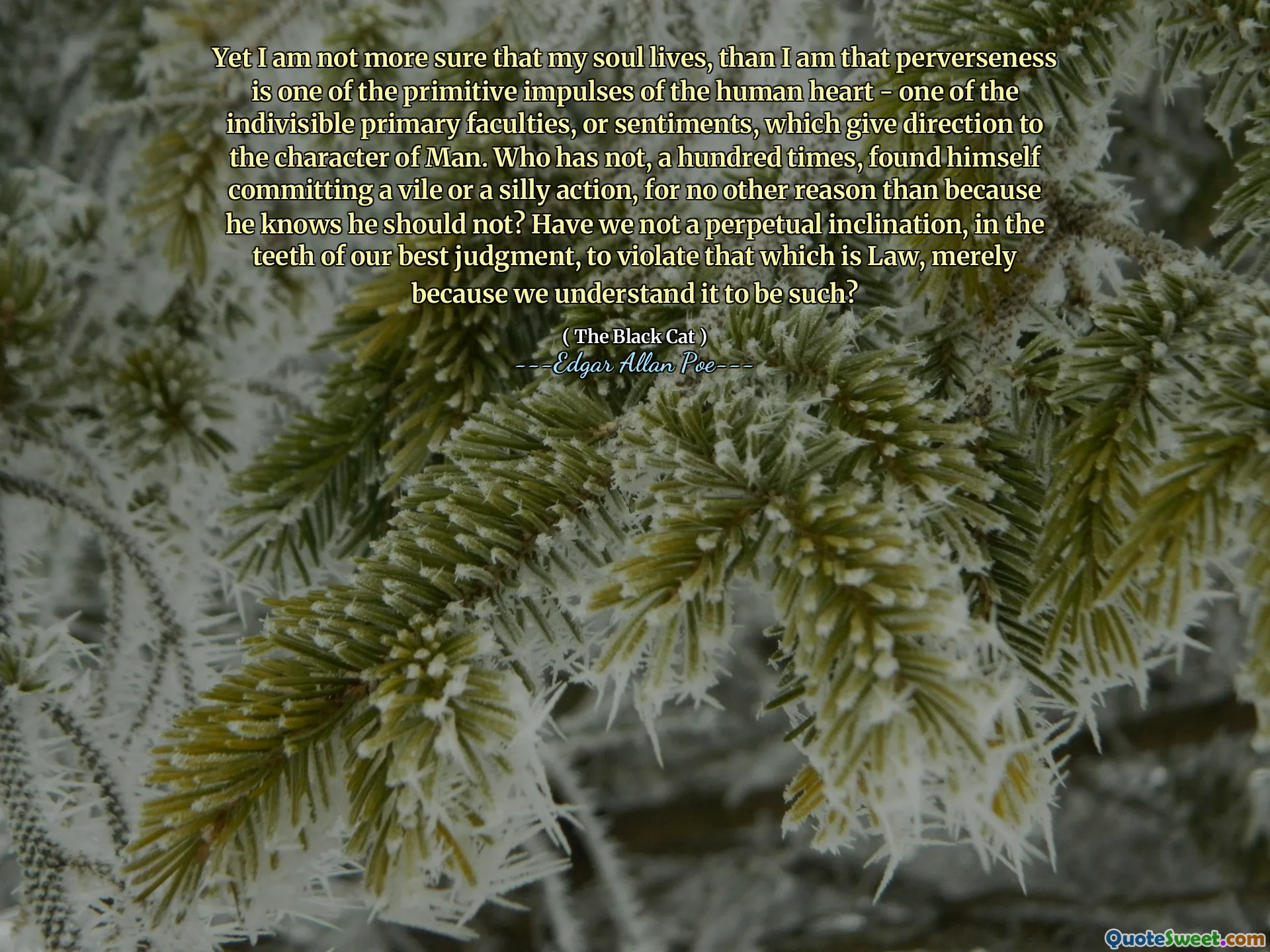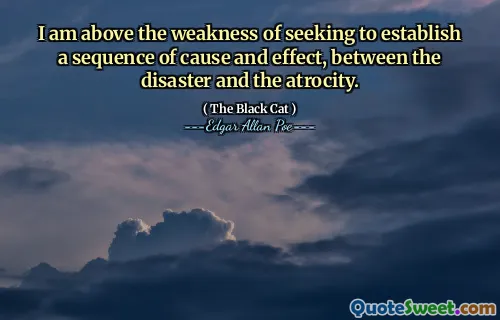
Yet I am not more sure that my soul lives, than I am that perverseness is one of the primitive impulses of the human heart - one of the indivisible primary faculties, or sentiments, which give direction to the character of Man. Who has not, a hundred times, found himself committing a vile or a silly action, for no other reason than because he knows he should not? Have we not a perpetual inclination, in the teeth of our best judgment, to violate that which is Law, merely because we understand it to be such?
The quote reflects the inner struggle of human nature, highlighting the tendency to act against one's better judgment. The speaker asserts that the impulse to act perversely is as fundamental to our existence as the soul itself, suggesting that this drive is an inseparable part of humanity. It implies that despite our understanding of right and wrong, we often find ourselves drawn to actions that contradict our moral beliefs simply because they are forbidden.
This contemplation raises questions about the essence of human character and free will. The recognition of this pervasive tendency underscores a universal truth: people frequently choose to defy norms not out of ignorance, but out of a conscious decision to rebel against perceived constraints. Such reflections invite readers to examine their own behaviors and the motivations behind them, revealing a complex interplay between desire, morality, and individual choice.








